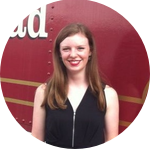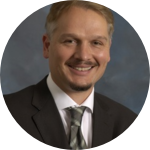About This Project
In this technological age, computer applications are easy to access and widely used in a variety of settings. Certain populations, such as those diagnosed with Autism Spectrum Disorder, could benefit from programs designed with an understanding of teamwork in mind. The computer games which have been designed at the University of South Carolina have the potential to be used as a new therapeutic treatment for autistic children, but need tweaking by the experts in the field.
Ask the Scientists
Join The DiscussionWhat is the context of this research?
My mentor, Dr. Roger Newman-Norlund, has created several theory-driven computer games which are designed to quantify teamwork skills. Quantifying teamwork skills is a traditionally difficult feat, but these computer games generate numerical data that represent each player's performance. I have spent the past year researching these games in a community setting and know firsthand the potential of these games as tools to assess social skills. The games need improvement and further validation, but local researchers do not have the knowledge necessary for complete analysis. We need to consult with experts in the field of social motor control and explore the games' effectiveness in children with social impairments. A few of these researchers are located in Nijmegen, the Netherlands.
What is the significance of this project?
Autism Spectrum Disorder is one of many diagnoses that is marked by social skill impairments. Unfortunately, social deficiencies are very difficult to quantify by traditional testing mechanisms. Why do we want to quantify these skills? When a child comes into therapy and plays these games, a set of numbers are generated that give professionals a baseline understanding of the child's real-life teamwork skills. Therapy can continue for a certain amount of time, and when the child retests, these games allow for a measurable increase in social skills to be observed. The games that I have been researching could prove to be an excellent way to measure teamwork, but we need help. Researchers in the Netherlands possess expertise which will allow me to put the finishing touches on these games.
What are the goals of the project?
- Develop and assess new data-analysis techniques to examine numerical data generated from the computer games under the guidance of leading experts
- Validate the existing games and explore their effectiveness in children with Autism Spectrum Disorder.
To meet these goals, I will travel to Radboud University to collaborate with a few experts in the field of joint action motor skills. When I get back home, I will dedicate the rest of my time to analyzing our data and disseminating what I learned while abroad.
Budget
I have already received a $4000 travel grant to pursue this project.
As I have worked on these games for the past year with children at the YMCA, it has become very clear to me what sort of things need to be incorporated into the games. There is so much potential in this line of research, and now is the time to dive in. I am in a STEM major with packed semesters, so the summer is the best (and only) time for me to make the trip abroad to meet and study with the experts.
I have already received a portion of the funds which will allow me to make the journey to the Netherlands, but I cannot afford to take these expenses on myself. With your funding, these games will be validated, programmed, and studied by the people writing the textbooks about the science behind teamwork. Extra money will provide me a salary during the extensive analysis upon my return.
Once I have reached $1000, the Office of Research will match any donations from you through this site, so your dollar will be doubled!
Meet the Team
Team Bio
My name is Lily Gullion, and I am a junior Exercise Science major at USC Columbia. I am planning on attending Occupational Therapy school after graduation. I grew up in Greenville, SC.
During the spring semester of 2014 (my freshman year), I worked with Dr. Newman-Norlund to direct an after school camp which taught cooperation skills. This was my first exposure to the fascinating world of teamwork skills, and I got a glimpse of how much more research there is to be done in the field.
The process of communicating with the experts of teamwork has been exciting and daunting, and I am thrilled at the opportunity to meet and study under these influential figures. Not only would I be able to gain extensive knowledge about the computer games and the data analysis process, but I would be able to help make the program a useful tool at its beginning stages. This research project would enable me to combine my passions for research and travel in a project of my very own, with the goal of helping countless researchers and therapists assign a value to social functioning.
Besides school and research, I spend my time in a variety of artistic and athletic endeavors. I make miniature sculptures, have built a to-scale dollhouse, and love to explore in the kitchen. I also enjoy rock climbing, hiking, and taking long walks on the beach.
Additional Information
Cover photo courtesy of Lucelia Ribeir, used with permission.
Project Backers
- 19Backers
- 100%Funded
- $6,029Total Donations
- $62.72Average Donation

